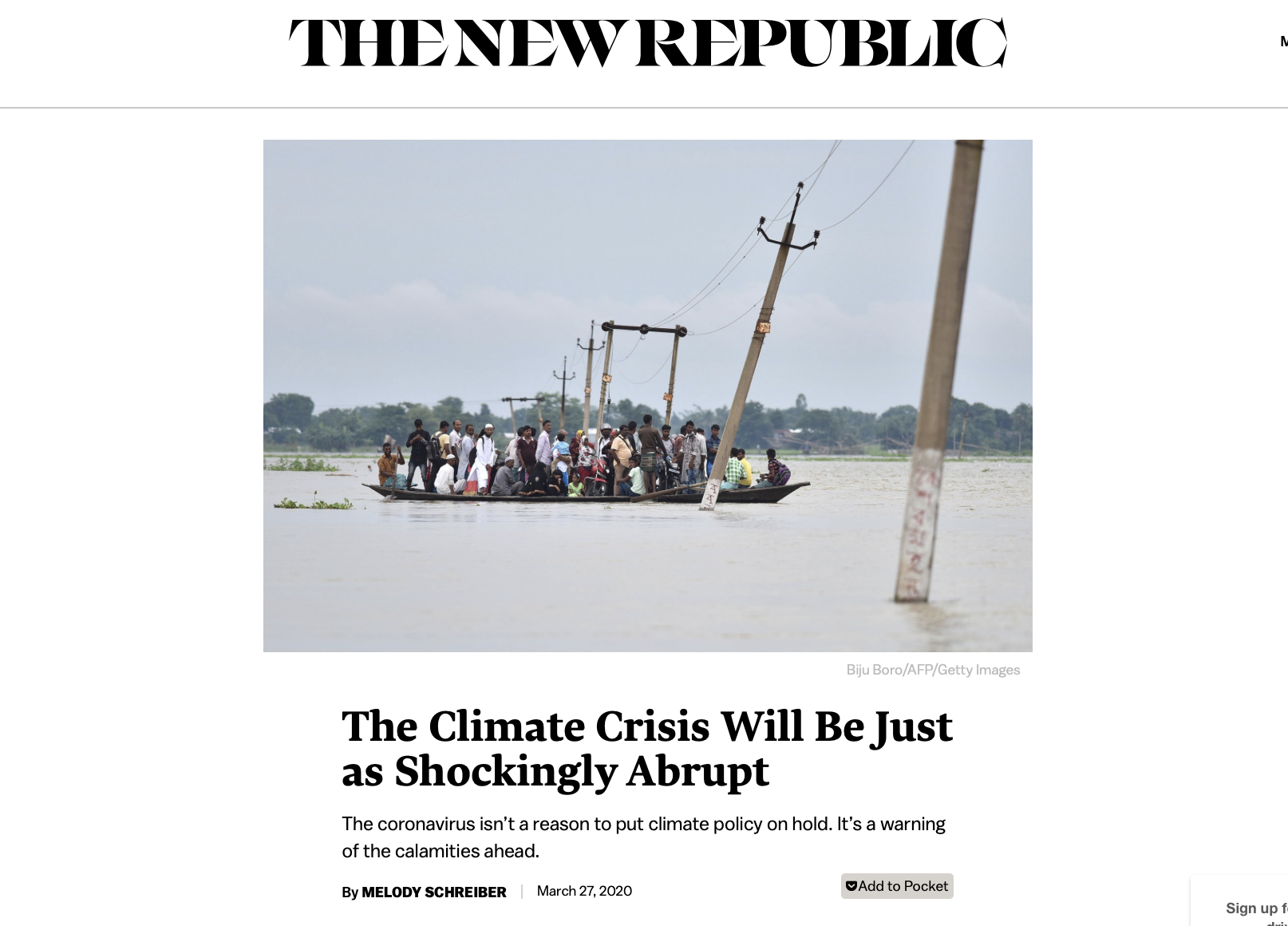The coronavirus isn’t a reason to put climate policy on hold. It’s a warning of the calamities ahead.
As governments around the globe debate how to respond both to the coronavirus itself and the economic chaos it has unleashed, a theme that’s come up over and over is how to prioritize what makes it into spending packages. In the United States, right-left fault lines have emerged over the question of bailing out emissions-heavy industries versus a greener stimulus. On Thursday, the Environmental Protection Agency announced a large-scale rollback of environmental regulations as a response to the pandemic—allowing many emitters to police themselves when it comes to pollution.
While some argue that the oxygen in the climate debate should be taken up by the pandemic instead, the two issues aren’t mutually exclusive, experts say. In a warming climate, more diseases are likely to emerge and spread, making climate change action an important part of addressing future health crises. Moreover, the perception that climate change isn’t as urgent as other crises may rely on misunderstandings about how climate-related changes will happen. The rate isn’t constant: Instead, there’s reason to believe everything from Arctic melt to Amazon deforestation might experience what’s known as “tipping points,” where small changes in nature shift into rapid and irreversible damage.
Source: The New Republic (also PDF)
